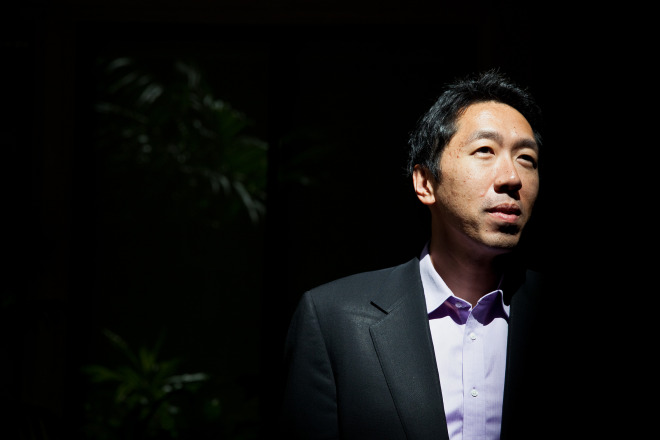Artificial Intelligence does not destroy the world, but can take away your work.

Discussions about artificial intelligence and its possible role or behavior in this world do not subside. The closer a person comes to creating an AI, the more specialists are drawn into the discussion. For example, Stephen Hawking and Ilon Musk believe that AI can be the end of our civilization. Bill Gates thinks the same way.
But one of the world's best AI specialists, Andrew Un , who is currently working at Baidu, believes that artificial intelligence does not threaten human life and health, as well as our entire civilization. According to Andrew, worry is not due to the possible appearance of the Terminator, more attention should be paid to devices such as robotic trucks. For the sake of justice, it should be noted that the problem discussed below concerns not “pure AI”, that is, really machine intelligence, but rather smart devices with elements of artificial intelligence.
Andrew Eun is not united in his opinion, there are other specialists in AI, who think about the same. WIRED journalists tried to find out the opinion of the most prominent figures in the field of AI development. After interviewing the experts, it became clear that most consider AI not too dangerous for a person in the short and medium term. In a long-term AI, it can be a problem, but not in the role that we usually imagine.
')
Andrew Eun argues that the US transition from the agricultural stage, when 90% of the population worked on farms, to the current state, when only 2% of the population work in agriculture, took 200 years. But the transition from the current state to the “artificial intelligence works instead of you” stage will happen much faster, and this can be a big problem.
Most likely, AI will have a strong influence on civilization in about 5-10 years, according to cognitive robotics professor Murray Shanahan from Imperial College.
Two professors from the Massachusetts Technological University, Eric Brynjolfsson and Andrew McAfee (Erik Brynjolfsson, Andrew McAfee), agree with these ideas, who believe that we are entering the second technological era, where changes triggered by the development of digital technologies can leave millions of non-specialists and workers of average skill out of employment.
The same robotic trucks may eventually lose their support in the form of a human operator. If robotic cars show their reliability, then why else is the man inside? Legislation can be adapted to new realities faster than it seems, not to mention the adoption of such innovations by shipping companies.
Robots cars, robots, waiters, robots, room service in hotels. Last year, for example, Google Corp. replaced a group of workers who recognized images (phone numbers, house numbers and street names on the walls, etc.) with a special software, and sent workers to other activities.
Andrew Eun, who, among other things, is the co-founder of Coursera, believes that AI has already begun to take work from people, and over time this process will only accelerate.
By the way, there are other opinions about the influence of AI on civilization. For example, quite an optimistic article has already been published on geeks, where the opinion of Oren Etzioni (head of the Allen Institute of Artificial Intelligence) is shown.
Source: https://habr.com/ru/post/376111/
All Articles